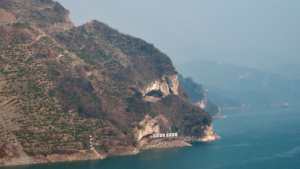He spent a little less than eight hours in Israel but got a fair bit done, including a Gaza humanitarian aid deal via Egypt’s Rafah border crossing.
- Biden added that if the aid isn’t intercepted by Hamas – a key Israeli fear – Egypt has agreed it’ll let more in.
- In parallel, Israeli officials are saying they won’t allow aid in from Israel’s side of the border until Hamas releases all hostages.
Biden also reiterated that the US backed Israel’s war against Hamas:
- And he said US assessments were concurring with Israel that a stray rocket from “the other team” (not Israel) hit the Al Ahli Hospital in Gaza yesterday.
- We’re expecting to see declassified US intel soon, adding to the emerging physical evidence at the site.
- Some outlets have walked back their initial reporting on Israeli culpability, but don’t hold your breath for regional governments to follow suit.
As we foreshadowed, Biden sought to walk a fine line between showing support for Israel without further angering its Arab neighbours, telling Israelis:
Stay on top of your world from inside your inbox.
Subscribe for free today and receive way much more insights.
Trusted by 134,000+ subscribers
No spam. No noise. Unsubscribe any time.
- “You can’t look at what has happened here … and not scream out for justice. But I caution this: while you feel that rage, don’t be consumed by it. After 9/11, we were enraged in the United States. When we sought justice and got justice, we also made mistakes.”
UNSC inaction
The US vetoed a UN Security Council (UNSC) resolution yesterday that would’ve condemned the Hamas attacks while calling for a ‘humanitarian pause’ to allow aid into Gaza. 12 members voted in favour; the UK and Russia abstained.
- Explaining the US veto, Ambassador Linda Thomas-Greenfield said the resolution made no mention of Israel’s right to defend itself.
- France’s ambassador lamented the US decision, saying there’s no contradiction between Israel’s right to defend itself and the need to protect civilians and respect international law.
Either way, this will fuel scepticism that the UNSC is no longer fit for purpose.
What about Ukraine?
According to the Financial Times, the ‘Global South’ is finding contradictions in the West’s approach to Israel vis a vis Ukraine. An Arab official told the FT:
- “If you describe cutting off water, food and electricity in Ukraine as a war crime, then you should say the same thing about Gaza.”
- Otherwise, the argument goes, you risk undoing 18 months of work to nudge (for the sake of the international order) countries like Brazil, India, Indonesia, and South Africa to take a stand against Russia’s invasion.
Russia clearly has an interest in stoking tensions here:
- A diminished Russia wields less influence in the region but will (along with China) be happy to see US power consumed there.
- Plus, Russia now relies on Iran for some military kit, a fact Iran will highlight to Moscow when seeking support for its approach to Israel.
Final thought: After 18 months on the front pages, Ukraine now risks losing the world’s attention. And that’s partly what a fraying world order looks like: more conflicts, diluting more of the world’s bandwidth, in turn making each conflict tougher to solve, while allowing additional conflicts to flare up.









